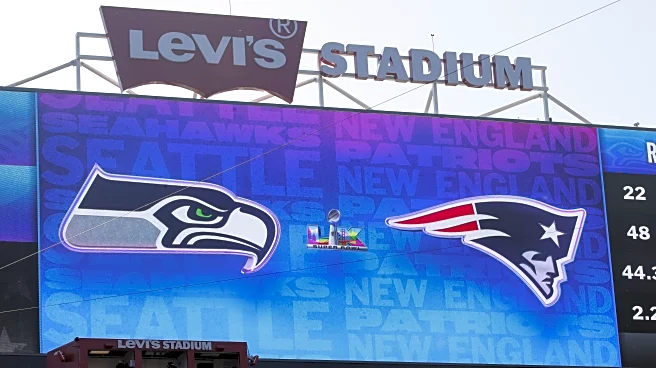Rapid Read • 9 min read
Shaun Thompson, a 39-year-old man, is challenging the Metropolitan Police's use of live facial recognition technology after being wrongly identified as a suspect. The incident occurred in February last year outside London Bridge Tube station, where Thompson was stopped by police. He described the experience as 'intimidating' and 'aggressive,' likening it to 'stop and search on steroids.' Thompson, who works with the community group Street Fathers, refused to provide fingerprints and was released after showing a photo of his passport. The Met Police has announced plans to double its use of facial recognition technology, claiming it helps catch dangerous criminals. Since January 2024, the technology has led to over 1,000 arrests, with 773 resulting in charges or cautions. However, privacy campaign group Big Brother Watch is supporting Thompson's legal challenge, arguing the technology is intrusive and lacks democratic scrutiny.
AD
The legal challenge against the Metropolitan Police's use of facial recognition technology highlights significant concerns about privacy and potential racial discrimination. The technology's deployment raises questions about its accuracy and fairness, particularly in communities with low trust in policing. The case could set a precedent for how facial recognition technology is regulated and used by law enforcement agencies. If successful, it may lead to stricter oversight and legal frameworks governing the use of such technology, impacting public policy and civil liberties. The outcome of this challenge could influence how similar technologies are adopted across the U.S., affecting privacy rights and law enforcement practices.
The judicial review of Shaun Thompson's case is scheduled for January, marking the first legal case of its kind against facial recognition technology. The Home Office plans to outline future use and legal safeguards for facial recognition technology in the coming months. The Metropolitan Police intends to increase its use of the technology, deploying it up to 10 times a week. The outcome of the legal challenge could prompt further scrutiny and potential changes in policy regarding facial recognition technology, influencing its use in law enforcement and public spaces.
The deployment of facial recognition technology by the Metropolitan Police raises ethical concerns about surveillance and privacy. Critics argue that replacing community policing with algorithms and cameras could exacerbate existing tensions between law enforcement and marginalized communities. The technology's potential for misidentification and racial bias underscores the need for transparent and accountable use. The case highlights broader societal debates about balancing security with civil liberties, and the role of technology in modern policing.
AD
More Stories You Might Enjoy













